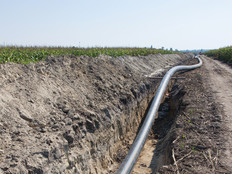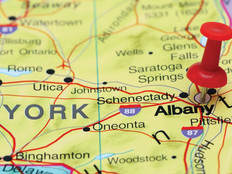4 Ways Cities Can Foster a Better Internet Economy
There is no need to emphasize that the internet is the foundation for technological advancements necessary to build a bridge to the future for cities and their governments.
But connectivity isn't yet at its peak in most cities across the U.S., and many still experience huge digital divides that manifest in lost opportunities for cities and residents. In fact, a new report from the National League of Cities (NLC) and the Internet Association (IA) titled "Here They Come: A Look at the Future of Cities in the Internet Age," finds that the internet alone contributes an average of 3.3 percent to city jobs and businesses. Moreover, cities with stronger internet economies are more likely to have a higher median income as well as lower levels of unemployment and poverty.
"City leaders know just how critical advances in technology are to the future of our cities. The internet is the foundation of these advances and this report shows the measurable impact that it has on local businesses, job opportunities and daily life in cities," Clarence E. Anthony, CEO and executive director of the NLC, said in a statement.
So how can cities reach peak connectivity and experience all the economic and quality-of-living benefits that come along with it?
The new study from NLC and the IA suggests there are four strategic ways that cities can expand their internet economy:
SIGN UP: Get more news from the StateTech newsletter in your inbox every two weeks
1. Design Smart Cities to Grow Connectivity
It might feel like every city and its sister is involved in a smart city project, but the truth is that they are still relatively rare, particularly when it comes to implementing full-scale, citywide smart city programs. By dipping into smart city technology deployments, however, cities can not only reap the rewards of just that program, but also those that come with further buy-in to connectivity, since most require a network refresh to become a reality.
"The development of smart cities builds upon this strong historical foundation through the incorporation of digital technologies to allow cities to function more efficiently. Digital tools allow for greater responsiveness to community members and, ultimately, create better and more equitable urban environments where people can thrive," the report's authors state.
Enabling the infrastructure for autonomous vehicles, sustainable energy sources and advanced manufacturing are all ways that cities can begin to incorporate the Internet of Things into their operations. They can reap quick returns on investment from the program and simultaneously lay the groundwork for more connectivity.
2. Support Open Data Programs
Open data programs make (unsecured) city data freely available to the public and, in many cases, much easier to understand and use. By making valuable data available to potential businesses, startups and city employees themselves, these programs often open up cities to new ways to solve civic challenges and drive economic growth.
"Open data systems provide win-win opportunities to cities and their citizens; businesses can utilize the data to improve products, services, and efficiency while governments can gain important insights on services and constituents" the report's authors state.
It goes on to mention that open data programs are also useful ways for drawing in outside research partners "for help on issues ranging from policing strategies to freight truck route optimization and more."
Los Angeles, for example, is using open data in combination with data visualization to do everything from spot road obstructions to better plan and evaluate city services.
3. Facilitate Connectivity Pilot Projects
Not ready to dive in with a full-scale tech investment? Pilot projects are a great way for cities to start small.
"The use of pilot programs for technology testing, data sharing, diagnostic work for initiative targeting and other mutually beneficial relationships improve the development of both individual companies and the cities in which they reside," the report's authors state.
When the pilots are successful, they allow for cities to rapidly test and prove a new technology use case, which can send a project into full-scale development faster. When they fail, they allow cities to move on quickly without all the damage and lost investment that comes with full-scale projects.
4. Invest in Internet-Focused Public-Private Partnerships
It's tough to go it alone, particularly when it comes to testing and deploying something new. But with public-private partnerships, sometimes cities don't have to.
"Partnerships are key to achieving policy goals. Governments can often draw on the technical expertise of the private sector while companies can draw on the vision and policy expertise of local leaders to find solutions that help both parties involved," the report's authors state.
The city of Columbus, Ohio, for example, is in the midst of a huge smart city makeover made possible in several ways through public and private partnerships. Poignantly, the city leveraged a $50 million grant from the Department of Transportation as the winner of the agency's Smart City Challenge to raise millions from private-sector partners, increasing its investment from the initial $50 million to nearly $360 million, according to the report.
With significantly more funding to work with and private-sector partners standing by to help with implementation, the city is able to research, test and deploy connected tech at a significantly faster clip.









